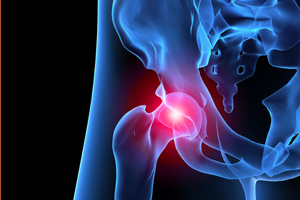Updated September 25, 2012, at 5:45 p.m. with comment from Smith & Nephew.

Smith & Nephew (FTSE:SN, NYSE:SNN) issued an "Urgent Field Safety Notice" for its Birmingham Hip Modular Head implants, part of the suite of devices that pioneered the metal-on-metal hip field when they 1st hit the market in 1997.
The orthopedic giant warned the Hong Kong department of health that new data on the implants, gathered since 2010, suggests a 1.29% failure rate based on the National Joint Registry of England and Wales and a 1.12% failure rate based on the Australian Orthopaedic Association’s National Joint Replacement Registry.
On their own the rates exceed the 1% benchmark established by the U.K.’s National Institute for Health and Clinical Excellence. Prior to 2010 registry data showed a 1% revision rate for the devices, according to the company.
"Smith & Nephew’s highest priority is to deliver safe and effective medical technology to benefit patients," Smith & Nephew spokesman Joe Metzger told MassDevice.com today. "As such, we have notified customers and regulatory bodies of a change to the indications for use for the Birmingham Hip Modular Head used during total hip replacement and revision."
Smith & Nephew did not issue a recall on the device, but updated its indications for use. The company noted that, when used strictly with the Smith & Nephew’s Synergy stems, the hip implants exhibited a 1.07% failure rate, which is within acceptable limits.
"The potential risks that may result from use of the device have not changed," according to a letter the company sent to healthcare providers. "They may include pain and limited mobility, potentially leading to revision surgery. Females of child bearing age are at greater risk with metal-on-metal implants. Severely overweight individuals have been observed to be at greater risk of revision surgery."
The new indications on the Birmingham Hip Modular Heads restricts use only to revision surgeries "in cases where a Birmingham Hip Resurfacing femoral component is being revised, the patient shows no signs of metal sensitivity, and it is being implanted in conjunction with an uncemented Synergy stem," according to a Smith & Nephew web page.
The re-labeling does not change current practice for follow-up care for the Birmingham Hip Modular Head devices, Metzger told us.
"This modification does not apply to the U.S. market where the Birmingham Hip Modular Head is not approved for use as part of a primary hip replacement procedure," he added. "This change does not apply to our BHR resurfacing device, which is performing very well, and is supported by data from several registries and independent, peer-reviewed articles."
The alert is a new blow in the ongoing MoM implant controversy that has embroiled several orthopedic device makers, most notably Johnson & Johnson‘s (NYSE:JNJ) subsidiary DePuy Orthopaedics, in a flurry of lawsuits and public outcry.
As the 1st MoM hip implant to hit the global market, a knock against Smith & Nephew’s Birmingham devices may portend a fatal blow to the suite of products that followed, including those by Biomet Inc., Encore Medical, Wright Medical (NSDQ:WMGI) and Zimmer (NYSE:ZMH).
The Birmingham implants 1st hit the world in 1997, pioneered in Birmingham, England, by McMinn in a back-yard shed. McMinn believed that the risk of metal ions being introduced into patients’ bodies could be minimized with a design that kept the metal surfaces apart.
Rival orthopedic devices maker Wright Medical (NSDQ:WMGI) sought to block Smith & Nephew from getting its Birmingham metal-on-metal hip implant into the U.S. marketplace, according to filings with the FDA. Wright filed a citizen’s petition alleging that the study behind the PMA application was inadequate to prove safety and effectiveness.*
Correction, September 25, 2012, 5:00 p.m.: This article’s final paragraphs mistakenly used data about Smith & Nephew’s Birmingham Hip Resurfacing device in reference to the Birmingham Hip Modular Head implant.

